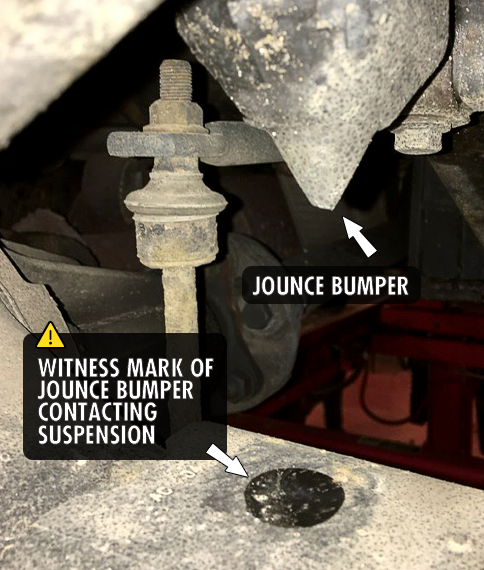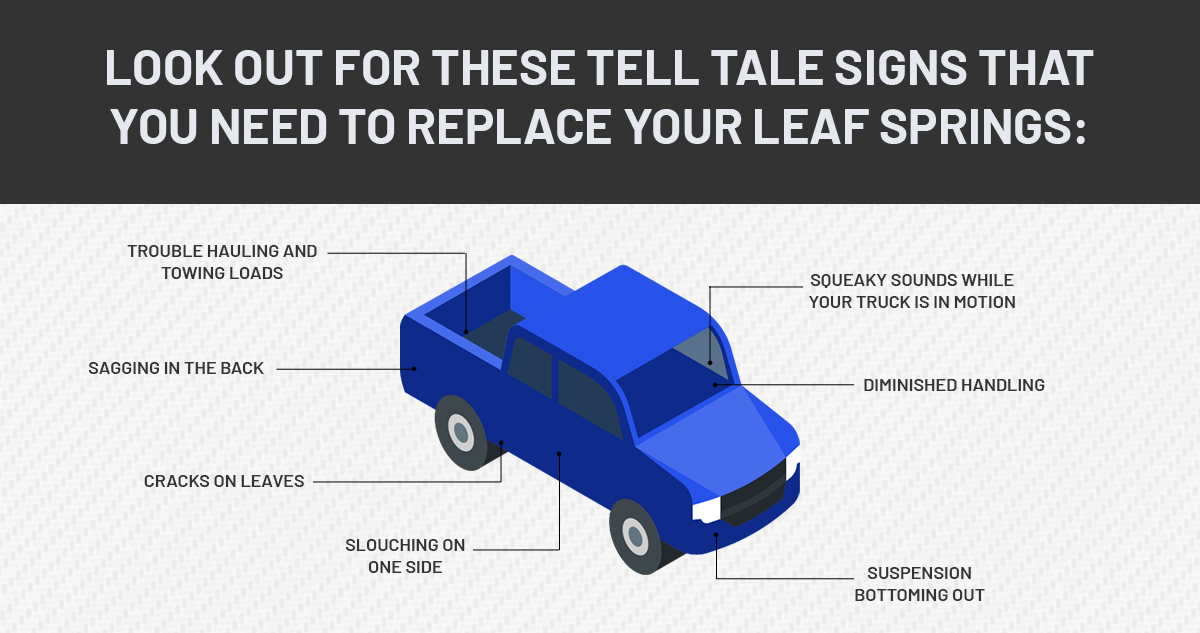Your car springs may be bad if you notice uneven tire wear or hear unusual noises while driving. Signs also include a bumpy ride and sagging of the vehicle’s body.
Car springs play a crucial role in the vehicle’s suspension system, ensuring a smooth ride by absorbing bumps and uneven surfaces on the road.
These components bear the weight of your car, contributing to effective handling and braking.
Over time, springs can wear out or get damaged due to constant stress, leading to a compromised ride quality and safety concerns.
It’s essential for car owners to recognize these early signs of wear to address potential issues promptly.
Keeping an eye on your car’s performance and condition can prevent more significant problems down the road, ensuring your vehicle remains safe and comfortable to drive.
Introduction To Car Suspension Systems
Car suspension systems play a vital role in your vehicle’s handling and comfort.
They ensure smooth rides and keep tires in contact with the road.
A key component of the suspension system is the springs. They absorb shocks from road irregularities. Properly functioning springs are critical for a safe and comfortable driving experience.
Role Of Springs In Ride Comfort
Springs support your car’s weight and absorb bumps. They work with shock absorbers to maintain ride comfort.
Good springs respond to road surfaces, ensuring consistent handling. They contribute to vehicle stability and passenger comfort.
The Impact Of Worn Springs
- Decreased ride comfort
- Increased wear on other suspension parts
- Potential safety hazards
Worn springs lead to a bumpy ride. They cause premature wear on tires and shocks. In severe cases, they compromise vehicle safety.
Regular checks prevent these issues. Mechanics assess spring health during routine maintenance.

Credit: www.monroe.com
Early Warning Signs Of Failing Car Springs
Car springs play a crucial role in your vehicle’s suspension system. They absorb shocks from road bumps and potholes.
Weak or broken springs can lead to a rough ride and handling problems. Look for these early warning signs to catch spring issues before they worsen.
Unusual Noises Over Bumps
Clunks and squeaks when driving over bumps are red flags. These sounds may mean your springs are worn out.
Listen for these noises; they are key indicators that your car needs attention. A mechanic can confirm if the springs are the cause.
Visible Sagging Or Leaning
Uneven car height suggests spring failure. One corner may sit lower than the others.
This sagging can affect your car’s balance and tire wear. Check for this by looking at your car from a distance. If it leans to one side, your springs might need replacement.
Regular checks keep your car safe. If you spot these signs, visit a mechanic.
Early detection saves time and money, and ensures a smooth, safe ride.
Ride Quality And Handling Issues
Over time, car springs may wear out. This can lead to a rough ride. You may notice your car doesn’t handle as well.
Let’s explore signs of bad car springs under two key aspects.
Decreased Shock Absorption
Rougher rides can be a sign of bad springs. Car springs help absorb bumps. When they fail, you feel every road imperfection.
Bouncing excessively after hitting a bump is another clue. This means the springs can’t keep the car stable.
- Car dips forward when braking
- Car squats back when accelerating
- Tire tread wears unevenly
Compromised Cornering Stability
Bad springs affect cornering. The car may lean too much. This can make turns feel unsafe. The car could sway or drift.
This is a sign that the springs are not performing well.
- Excessive leaning in turns
- Feeling of “floating” on the road
- Difficulty maintaining control in corners
Good springs keep your car stable. They make sure you have control. If these issues arise, consider checking your springs.
They might need a replacement.
Visual Inspection Tips For Car Springs
Your car’s springs play a crucial role in its handling and comfort. Over time, springs can wear out. A visual inspection can reveal issues.
Here are steps to check your car springs for damage.
Checking For Breaks And Corrosion
- Look for cracks or breaks in the springs.
- Check for rust, especially at the ends.
- Inspect for signs of spring fatigue.
- Search for uneven gaps between coils.
Broken springs need immediate replacement. Rust can weaken springs, leading to failure.
If you spot these issues, consult a mechanic.
Assessing Spring Compression
- Measure the ride height of your car.
- Compare the height to factory specs.
- Look for a sagging appearance.
- Check if the car sits level on flat ground.
Uneven spring compression affects handling. It can cause the car to lean.
Assess spring compression regularly for a smooth ride.
Testing Spring Integrity
Car springs play a crucial role in vehicle stability and comfort. Over time, springs can wear down or break.
This affects handling and safety. Let’s explore how to test spring integrity.
Bounce Test Procedure
Perform a bounce test to check your car springs at home. Follow these steps:
- Ensure the car is on a flat surface.
- Press down on the vehicle’s front corner.
- Release and observe how the car reacts.
- Repeat for each corner of the car.
A healthy spring will allow the car to bounce back and settle quickly. Multiple bounces indicate possible spring issues.
Professional Diagnostic Tools
Professionals use advanced tools for accurate diagnostics. These tools include:
- Strut testers to measure spring performance.
- Electronic wheel alignment tools to detect uneven wear.
- Coil spring compressors for thorough inspection.
These tools help mechanics find issues that a simple bounce test might miss.
Regular check-ups with professionals ensure safe and smooth rides.

Credit: eeuroparts.com
The Dangers Of Neglecting Spring Maintenance
The Dangers of Neglecting Spring Maintenance on your car are not to be overlooked.
Car springs play a crucial role in maintaining vehicle stability and handling. When they fail, the consequences can range from discomfort to dangerous driving conditions.
Regular checks and maintenance are essential for safety and vehicle longevity.
Increased Wear On Other Components
Ignoring spring maintenance leads to extra stress on car parts.
This can accelerate wear on tires, shock absorbers, and suspension joints.
The result is often unexpected repair costs and a shorter lifespan for these components.
- Shock absorbers suffer without healthy springs.
- Tires wear unevenly, reducing grip and safety.
- Suspension joints can become loose or damaged.
Safety Risks And Performance Issues
Bad springs compromise car control. This can lead to risky situations, especially when maneuvering or braking. Performance suffers too, with reduced comfort and efficiency on the road.
| Risk | Consequence |
|---|---|
| Poor Handling | Difficulty in steering |
| Braking Instability | Increased stopping distances |
| Reduced Comfort | Bumpy, unpleasant rides |
Regular checks ensure springs are in good shape. This maintains safety and performance levels.
Neglect can lead to dangerous outcomes and costly repairs. A well-maintained car provides peace of mind and reliable service.
When To Seek Professional Help
Knowing when to seek professional help for your car’s springs is crucial.
It ensures your vehicle remains safe and efficient.
Let’s explore key signs that it’s time to consult a professional.
Choosing The Right Mechanic
Finding a trustworthy mechanic is vital. Here are steps to help you choose:
- Look for certifications – Ensure they have ASE certification.
- Ask for recommendations – Friends and family can suggest good mechanics.
- Check reviews – Online reviews give insight into their service quality.
- Compare prices – Get quotes from multiple mechanics for the best deal.
Understanding Repair And Replacement Options
Understanding your options helps make informed decisions. Here’s a breakdown:
| Option | Details | Cost |
|---|---|---|
| Repair | Fixing the existing springs | Lower |
| Replacement | Installing new springs | Higher |
Discuss both options with your mechanic. They can advise on the best course of action.
Preventive Measures And Regular Checks
Understanding the health of your car springs is vital. Springs play a crucial role in vehicle handling and comfort.
Preventive measures and regular checks ensure they remain in top condition.
Let’s dive into the importance of scheduled maintenance and explore options for upgrading springs.
Scheduled Maintenance Importance
Regular inspections are key to spring longevity. Mechanics often spot wear during routine check-ups. They look for:
- Corrosion
- Cracks
- Unusual sagging
Following the manufacturer’s schedule prevents sudden failures. This schedule includes:
| Interval | Check Points |
|---|---|
| 10,000 miles | Visual Inspection |
| 20,000 miles | Performance Test |
| 30,000 miles | Complete Assessment |
Staying proactive with these checks can save money and keep you safe.
Upgrading Your Springs For Better Performance
Performance springs offer enhanced handling and stability. When upgrading, consider:
- Spring rate for your driving style
- Quality brands known for durability
- Compatibility with your vehicle
Upgrades can also lead to a smoother ride. They reduce body roll and improve cornering.
A professional can help choose the right springs for your car.
Remember, investing in quality springs pays off.
It ensures your car handles as intended, providing a safer, more enjoyable drive.

Credit: www.generalspringkc.com
Conclusion
Identifying bad car springs is crucial for a smooth and safe driving experience.
Remember, unusual noises, uneven tire wear, and poor handling signal it’s time for a check-up. Don’t wait for these symptoms to worsen.
Regular inspections by a professional can ensure your vehicle remains in top condition, safeguarding your journey every mile of the way.
